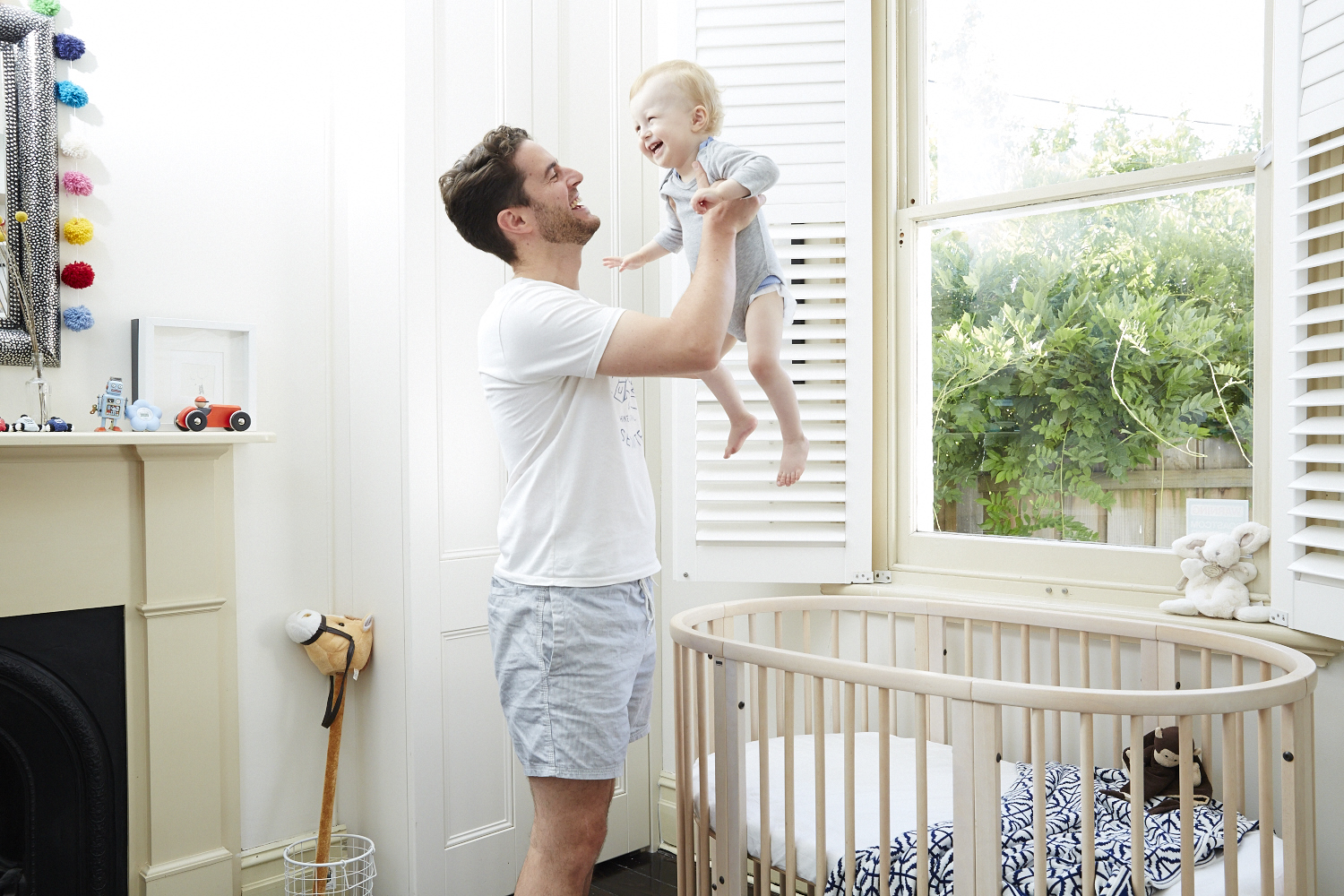According to the OECD, “Fathers who care for children early tend to stay more involved as children grow up. Where fathers participate more in childcare and family life, children enjoy higher cognitive and emotional outcomes and physical health. And fathers who engage more with their children tend to report greater life satisfaction and better physical and mental health than those who care for and interact less with their children.”
Yet not only is just 4.6% of primary carer’s leave accessed by men, but the latest ABS census found that women spend on average two hours and 52 minutes a day on domestic work and 59 minutes on childcare. In contrast, men spend one hour and 37 minutes on domestic work and 22 minutes on childcare. And 1 in 8 Australian men do zero household chores. No wonder the OECD categorises Australia as a “mid-range performer” across most gender equality measures.
As a society we continue to impose gendered expectations as to the roles and responsibilities of fathers. While we have made significant advances across our workplaces to include women, we are yet to afford men the same freedoms when it comes to carer responsibilities: Australian fathers have had the right to paid parental leave since 2011, but a 2018 study by Commonwealth Bank Australia revealed that 4 in every 10 men still fear parental leave will have a detrimental impact on their careers.
This fear is not unfounded: it’s based on the well-documented experience of women in the same position.
Recognising the impact of parental leave on careers and helping people to prepare for and overcome it is one of the reasons for Grace Papers’ existence. New fathers, just as much as new mothers, must feel empowered to take paid parental leave and work flexibly without fear of negative repercussions on their professional progress.
But to achieve that societal shift starts with government investment in a truly equitable government parental leave scheme, more like that we see in Sweden. And we need male leaders to use their privilege and power to influence better outcomes not just for those in their workplaces, but for all.
The current Government Paid Parental Leave scheme provides “Dads & Partners” with just two weeks’ leave, paid at the minimum wage. But it becomes even less of an incentive when you factor in:
- Workplace cultures that see one in four men experiencing discrimination for taking parental leave.
- Men’s requests for flexibility more likely to be denied than those of women.
- The family being more reliant on the man’s salary (thanks to an age gap between heterosexual couples and a gender pay gap of just over 14%).
The benefits of a more generous paid paternity leave scheme
A recent Monash University study of 951 fathers found 85 per cent said they would take three months off work to take care of their baby if there was no financial penalty. Sixty percent of working fathers would like to work part time provided they could have a meaningful career. And Swedish research has shown that a mother’s future earnings increased an average of seven percent for every month of leave their affectionately known “Latte Papas” took.
But to be honest, you simply can’t put a price or create a business case that truly justifies the connection that is built when Dads take parental leave.
Outdated gendered expectations that are stuck focusing on what a “real man” does are holding men, women and the economy back. To think that Sweden introduced paid parental leave in 1974, and Australia is still obsessed with terms like “primary carer” and “secondary carer”, shows just how outdated our system is.
Changing our parental leave policies and ensuring workplace flexibility enables all of us to care, makes sense for our communities, our children and has a double dividend in that it is the best way to increase female participation in the workforce and close the gender pay gap.
So this father’s day, let’s celebrate with the special men in our life, celebrate what it means to be a “good father”, and unshackle them from the “real man” stereotype once and for all.




